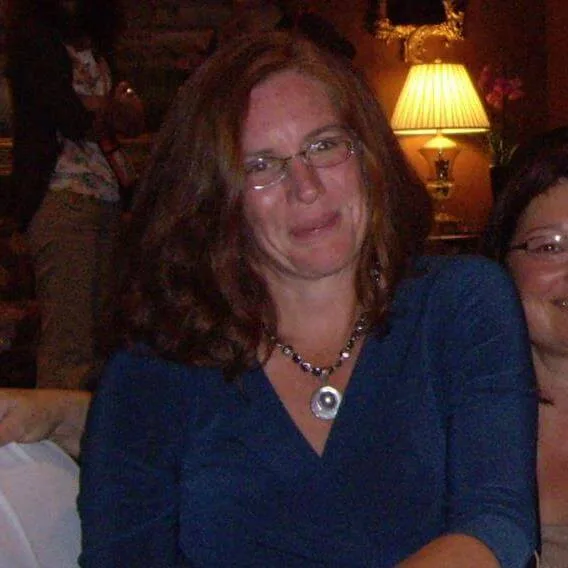When I started my PhD program at Boston College, I had three small kids and was the sole earner for our family. I had a full-time job and a couple of per diem gigs in the local emergency departments. In short, I did not have time to wander through an 8-year process – I had to be done and degreed in three years. In my first year I completed a master’s degree; this process can start earlier if you are doing a BA to PhD, and have a topic area of focus, with the last two years focussed on the coursework.
My advisors at Boston College mapped out the expectation that I had to be ready to defend the proposal right after we took our comprehensive exams, so in May or June of the second year of coursework. This might sound like a lot, so I’m going to walk you through the process of how it worked.
If you’re in nursing or humanities or social sciences, this could be a more easily workable plan. If you’re in a physical science and are attached to a lab, this may be more subject to your advisor and how fast you can progress with your work. I’ll describe how this worked with my subject, but feel free to apply this to your own pathway.
Go into your PhD program with an idea, NOT a dissertation
My idea was, “How are women presenting to the emergency department with chest pain assessed and triaged?” Use your general area of interest to maybe match with an advisor or reach out to some subject matter experts.
Read, read, and read
In your first semester, read widely. Write papers in all your classes on your topic area of interest, with the aim of covering a lot of perspectives in the literature related to your general topic. Take my classes for example:
Philosophy of science
I wrote papers about cognitive processes, and how things are “true”. This gave me great information about how people (in this case, nurses) think.
Epistemology
I wrote papers using this idea of “how do we know what we know”, and it gave me different ways to think about received knowledge and how nurses are educated, and how they operationalize that knowledge.
Ethics
I was able to read and write about moral obligation is a way that fit in with the other stuff I was reading. The world got bigger, and so did the problem area I was looking at. The problem now looked like more of an ethical concern, rather than a clinical concern.
Read outside of your discipline
In your second semester, continue to read and write broadly, including (and especially) outside your discipline. This offers the opportunity to allow your potential question to come into focus more clearly. Use what you now know about methodology to start to look at your problem in a way that might be answerable. Understand deeply and viscerally that the question drives the method; don’t start with a method and try to cram a question into it. Do a lot of thinking. Be open to possibility. It might help you to keep a running literature table in Excel – this will allow you to do your review of literature in the 3rd semester (see below).
Between the 2nd and 3rd semesters (for most people this is Summer 1), you might benefit from doing a pilot study to test the waters of your idea. For me, this looked like an ethnographic exploration of triage processes, where I watched 150 triage encounters in two emergency departments. It helped me better identify some of the issues I was working with, namely:
- Moral reasoning
- Clinical ability
- The environment of care
This exercise really helped me see the problem as much broader and more general than the very narrow, clinical perspective I’d had so far. I had developed a conceptual model of clinical decision-making in an environment where patients are unknown and potentially very sick, and this led to an initial publication that I could use to frame and guide my dissertation. For me, this shift highlighted the transition from clinician to academic/researcher, as I recognized the bigger problem I was beginning to understand.
Decide on a research question
In the third semester, the focus should be on the research question as a mutable entity, but one you’re trying to nail down via a review of the literature. Again, you’re hoping for a clear path, but be prepared to adapt your question as you read what’s out there in the literature – this review of the literature also helps you confirm whether your research question will fill a gap, and make an original contribution to knowledge.
Again, as you read, keep a running table so you can:
- Find the references at the end of the process.
- Organize your review of literature by concept.
- See where the gaps are in the literature to confirm your research question.
Methods
At the end of the third semester, you’ll have your review of literature completed, the gap in knowledge identified, and a clearer research question. The fourth semester should focus on the Methods. Again (and I cannot stress this enough) the question drives the method. Problems you might face while developing the methodology could include:
- Critique from your advisor. At times, your advisor might want you to stay within their own area of expertise, even when this isn’t the best option for your project. For instance, your advisor could be a quantitative researcher who wants you to utilise quantitative methods, or vice versa. My advice would be to focus on the question you want to answer – what type of methodology do you need? Ask for an additional committee member who specializes in the methodology you need to answer your question for advice on the methodology.
- The method you need might be beyond your current capacity. That’s fine, you’re in graduate school – and there is plenty of opportunity to learn. Take a class or ask one of your colleagues. Full disclosure: my dissertation was a quantitative validation of my theoretical framework. one of my cohort-mates helped me learn how to run stats. I still owe her a beer.
You’re ready!
At the end of the fourth semester (when we took our comprehensive exams to advance to candidacy), it’s possible to have completed chapters 1 (background) 2 (review of literature) and 3 (methods), which comprises the dissertation proposal. This may not be perfect, but it’s always easier to edit than write. This really requires that you be armed with advance knowledge of what you should or could be doing as you move through the program.
It’s important to recognize that your time is valuable, and this really incremental approach to the dissertation proposal can not only help you finish the proposal on time, but deliberately seek out literature and colleagues that can inform that process. Use every single class to inform your work, even if you think it’s not relevant, or you think it’s just a ‘throwaway’ class – it all gives you the opportunity to inform your question.
Good luck, and Godspeed.




